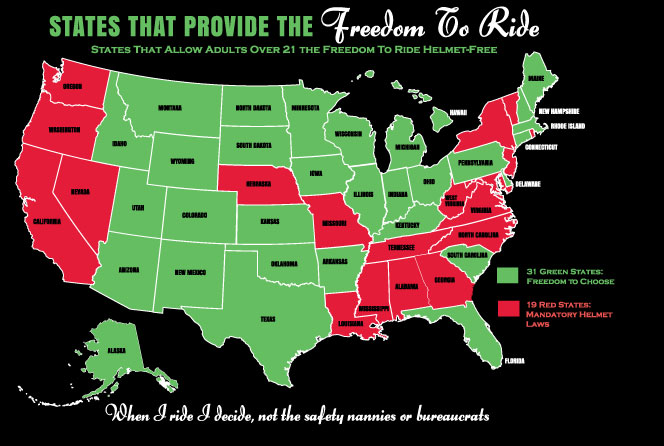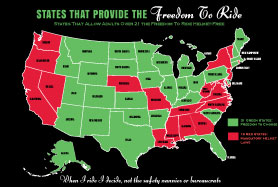165
ECONOMIC IMPACT
In 2000, Florida passed helmet law modifications. In the following year, more than 40,000 new motorcycles were registered in the state. With an average price of $10,000, that’s $400 million in sales for small businesses. In addition, those sales amounted to $24 million in sales tax revenues for the state and more than $1,444,000 in registration revenue increases.
At the same time, the passage of these laws had a significant impact on tourism in Florida. For the first time, attendance at Bike Week in Daytona Beach topped 500,000 people. The event had been held for 60 years, but it wasn’t until helmet laws were modified that attendance broke the half-million mark. Each year, attendees spend hundreds of millions of dollars at local shops, restaurants and hotels.
In 1997, Arkansas passed helmet modification laws. In the following year, the state saw a 50 percent increase in motorcycle registrations, generating approximately $70 million in sales for businesses and more than $3.5 million in additional sales tax revenues.
In 1997 and in 2003, Texas and Ohio, respectively, modified their helmet laws and within three years, both states saw significant increases in the number of new motorcycle registrations. Ohio had an increase of more than 62,000 new registrations, and Texas saw an increase of nearly 53,000 registrations – bringing millions of dollars in additional revenues into the states.







